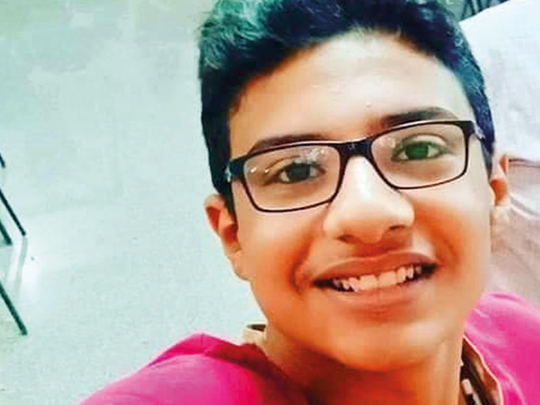
Cairo: The three brothers – Nadi, Reda and Kamal Shehata – were eager to go on pilgrimage to the St Samuel the Confessor Monastery—a remote site in the desert hinterland of Minya, around 240 kilometres south of Cairo.
The three Coptic Christians in their 50s arranged to head to the monastery from the early hours of Friday, a weekend in Egypt, and spend the first part of the day there. They decided to take their children and wives along with them in order to attend a mass service and tour the site.
Ten people from the family gathered at Friday dawn and boarded a minibus from their hometown of Minya for the journey, which proved to be the last for six of them.
On their way back at noon from the monastery, gunmen ambushed the minibus and sprayed it with bullets, killing six and injuring the four others. A Christian driver was killed too.
Nadi, Reda and Kamal as well as two of their children and a niece were gunned down in the attack claimed by the terrorist group Daesh.
“I don’t know whom I should mourn,” said Haydi, the sister of 34-year-old Riham, one of the six family members killed in the assault.
“My sister, my three uncles and my two child cousins – Maria and Beshui – were martyred,” Haydi added in online remarks.
“On the eve of the journey, I packed up things with them. I had originally planned to go with them, but later my circumstances did not allow me to go.”
Haydi added that her 12-year-old nephew Fadi was injured in the attack and his younger brother Mina survived unhurt, but is still in shock.
“Whatever they do, the terrorists will not shake our faith,” Haydi said.
Beshui, 15, and his father Reda were among those killed in the attack.
The teenager’s friends have paid tribute to him. “He loved people and was tolerant,”an unnamed friend told private newspaper Al Masry Al Youm. “He loved Egypt and as a scout boy he always displayed a badge of the Egyptian flag on his chest.”
Aida Shehata, a member of the same family, survived the attack with minor injuries.
“After visiting the monastery, we left at noon for home. After covering about one quarter of the road, we saw a 4x4 vehicle driving in our direction. We tried to go back to the monastery, but they caught up with us,” the 37-year-old woman remembered. “They rained our bus with bullets. Then, they fled. We could not identify them because they were masked.”
The attack was the deadliest targeting Egypt’s Christian minority in more than a year.
In May, 2017, militants linked to Daesh attacked a bus heading to the same monastery, killing 29 people.
In the aftermath of Friday’s assault, the Egyptian Interior Ministry said the victims used a secondary desert road in their journey to the monastery. The main road has been closed since the 2017 attack.
Head of the Coptic Orthodox Church Tawadros II reacted defiantly to the latest attack.
“We know that our most precious asset is our unity and cohesion,” the top cleric said. “Such incidents make us stronger. We pray for the martyrs, the injured and for our country’s peace,” he added in a video recording.
Egypt has experienced a wave of militant attacks since the army’s 2013 ouster of Islamist president Mohammad Mursi following enormous protests against his rule.
The attacks mainly targeted security forces and Christians, who backed Mursi’s removal.
In February, Egypt launched a major anti-terror operation targeting Islamist militants in the largely desert North Sinai and elsewhere. Authorities have since reported major successes in the campaign.
On Sunday, Egyptian authorities said police killed 19 terrorists involved in the Minya attack in an exchange of fire.












